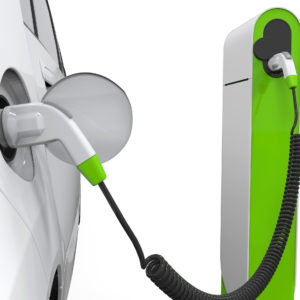President-elect Joe Biden has already begun detailing the initiatives he will promote throughout his first term as president. Climate change, which was a larger focus in the last presidential election than in previous ones, continues to be at the top of his agenda. Biden will not only embed climate change action throughout federal agencies, we can also expect extensive executive action on the issue.
One climate change policy that those who will fill Biden’s administration should examine closely is the promotion of electric vehicles (EVs). While many on the left view EVs as a straightforward solution to decreasing transportation carbon emissions, there are many unintended negative consequences that should be addressed before America transitions to a fully electric transportation system.
During the campaign, Biden released his plan for a “clean energy revolution and environmental justice.” This plan included “accelerating the deployment of electric vehicles,” encouraged by a “new fuel economy standard that goes beyond what the Obama-Biden Administration put in place.” And his day one “unprecedented executive actions” include getting the federal government procurement system to 100 percent “clean energy and zero-emissions vehicles.”
But before we get to 100 percent EV usage, particularly for government and emergency vehicles, there are clear ethical, moral, and logistical concerns that must be taken into account.
For example, every EV battery contains cobalt, and three quarters of the world’s cobalt is located in the Democratic Republic of Congo (DRC). The conditions of these cobalt mines in the DRC have been exposed for their harsh and unsafe conditions, and the mining is often done by children, some as young as seven years old, without masks or other safety equipment, for just one dollar a day.
Additionally, the lithium collection process for the lithium-ion batteries in EVs has resulted in environmental degradation in the communities it is collected from. In Chile’s Salar de Atacama, lithium mining used 65 percent of the region’s water, devastating local farms. And in Tibet, toxic chemicals leaked into the water supply because of lithium mining.
It is morally questionable – at best – for us to remove some of our carbon emissions through the use of child labor while tearing apart the environments in other countries.
Another issue that must be taken into consideration before we will be ready as a nation to transition to EVs surrounds the nation’s electrical grid.
Recent research shows that in the Midwest and Southeast, EVs actually result in more pollution than traditional vehicles. In areas where the electric grid is heavily reliant on fossil fuels, “battery electric passenger cars caused well over three times more local air pollution.” Air pollution is a health hazard, particularly in already marginalized communities.
Besides the increased air pollution caused by powering EVs with electricity that is produced by fossil fuels, electrical grid reliability is another thing to consider when promoting EV usage.
In states like California, which just last year was subject to rolling blackouts to prevent the spread of forest fires, the reliability of the electrical grid should be of huge concern for those promoting EVs. More emphasis should be put on ensuring the grid can withstand an influx of EVs, even when the power goes out, or it could mean disaster for those who rely on emergency vehicles in a time of crisis. The same goes for coastal areas, where hurricanes are frequent and often result in power outages. When this happens, EVs could make evacuating from these areas especially difficult.
While EVs may be a key component of reducing our transportation emissions, there are critical moral and logistical issues that the Joe Biden administration, and other elected officials, must figure out before pushing our transportation sector to solely EVs.

